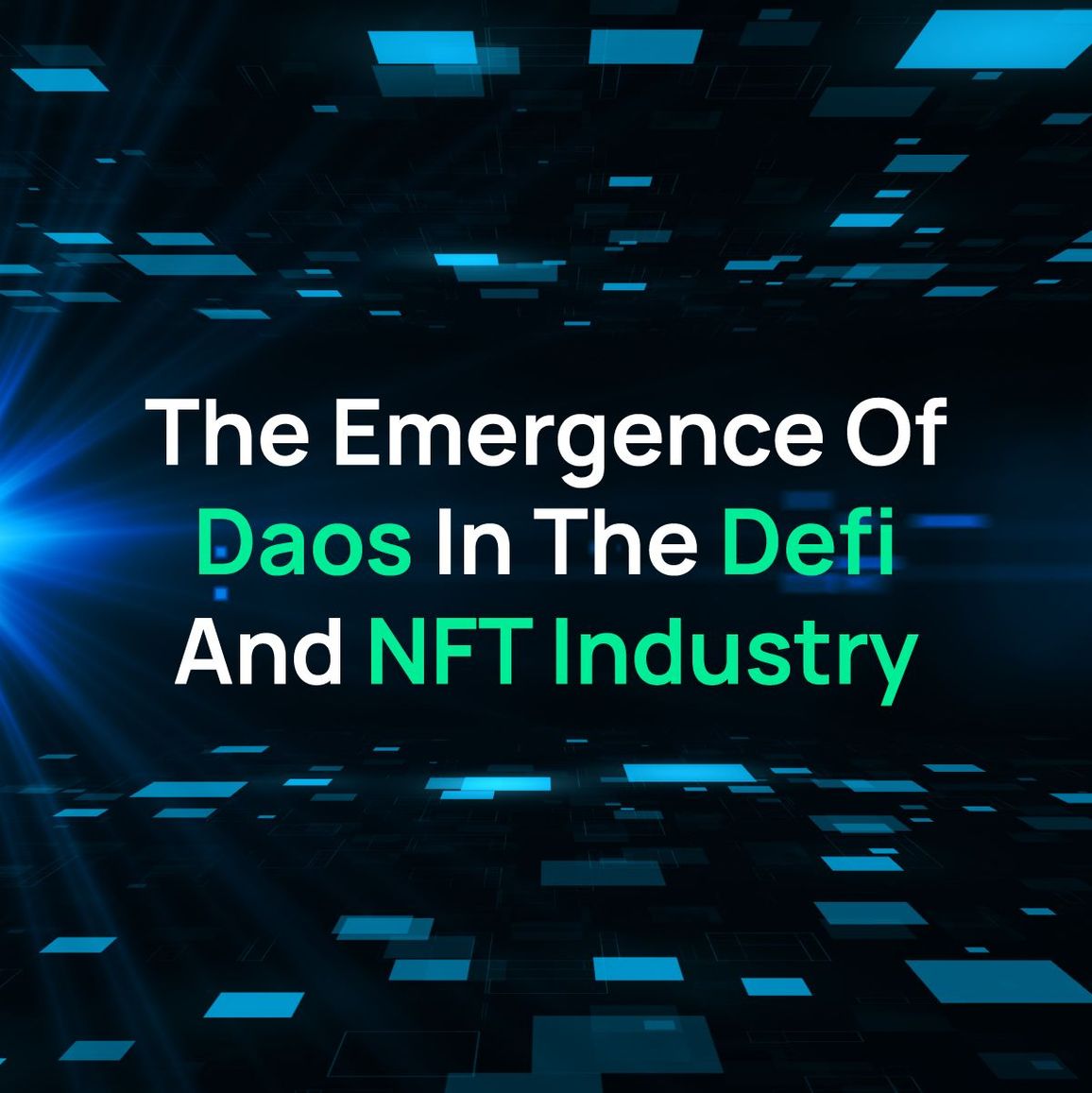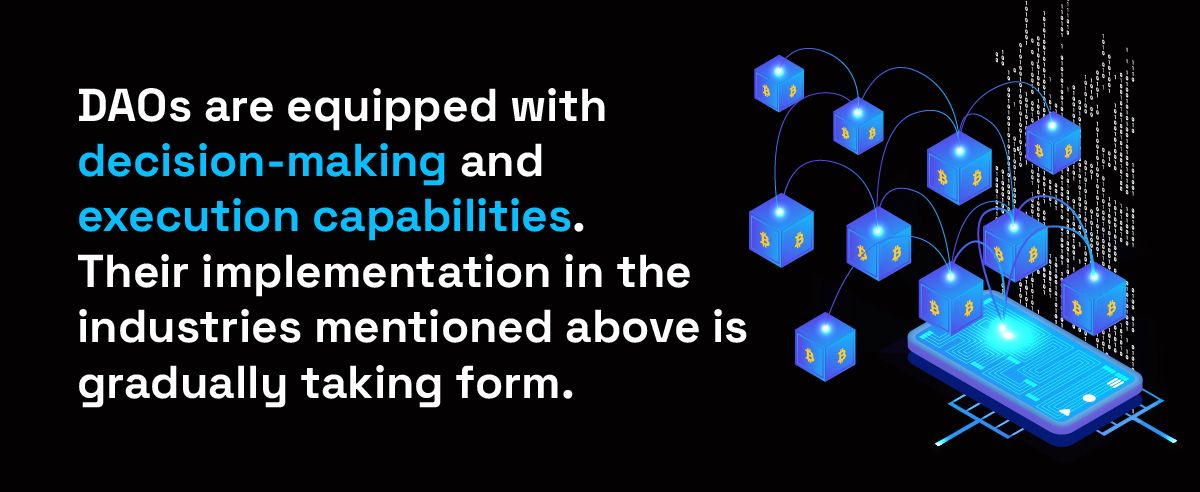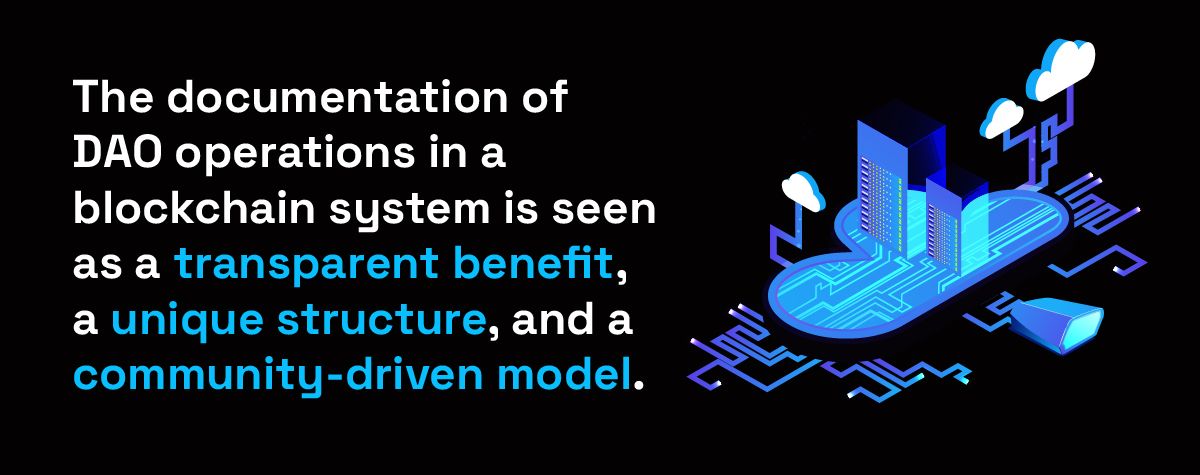The Emergence Of DAOs In The Defi And NFT Industry

What is a DAO?
Also known as Decentralized Autonomous Organization, DAO is a group of individuals bonded by contract to achieve a specific goal. Theoretically, DAO members can be strangers who have never met each other.
Members of DAO share the same goal/mission. They do not have a specified leader; instead, their decisions are made unanimously. The unanimous decision process makes DAO a decentralized body that is community-driven. The existence of DAO in the decentralized ecosystem is vital in the decision-making and success of specific projects. The operations of DAO are rooted in blockchain technology, and all records are digitally stored on the blockchain.
You can read our previous post on DAOs for more information about DAOs and how they work.
DAOs amidst giants

DAOs are becoming the ubiquitous element in the blockchain industry to get more attention and adoption. The genie that has failed to return inside its bottle. Decentralized Autonomous Organizations are showing up everywhere in the ecosystem. As a result, the essential nature of DAOs in the virtual world is becoming prominent.
As the NFT and DeFi industry continues to witness a significant upsurge, DAOs are also rising amidst the waves. As a result, DAOs are equipped with decision-making and execution capabilities. Their implementation in the industries mentioned above is gradually taking form.
Why do we need DAOs?

Blockchain technology and cryptocurrencies were created with decentralization and transparency as their core benefits. This is because decentralization and transparency are essential aspects to ensure independence and neutrality and protect members' personal interests. If this is clear enough, the foremost reason decentralized autonomous organizations are needed is to help pave the way to better organization and result-oriented decisions.
The traditional business model is highly censored and does not consider the views of all members of the board. DAOs are all-inclusive. The inclusivity in DAOs allows for a transparent and honest system and one that everybody longs for. Compared to getting a seat on the board of a traditional organization, becoming a DAO member is relatively more straightforward.
The documentation of DAO operations in a blockchain system is seen as a transparent benefit, a unique structure, and a community-driven model.
DAOs and DeFi

DAOs are set up for different purposes. The existence of DAOs in the decentralized finance (DeFi) industry has been instrumental to the growth of DeFi projects and helpful for DeFi investors.
One of the DAOs in DeFi is Venture DAO. This DAO focuses on investing in DeFi projects. It brings together individual forces and uses collective wisdom to reduce investment risks. Venture DAO looks out for investment opportunities in DeFi, and screens projects among members of the organization through voting and smart contracts. It also provides liquidity for projects while its members earn rewards on DeFi investments.
Venture DAO's design is said to be fair and transparent. Members can make investment recommendations and select high-quality DeFi projects for the organization. This process also proves the decentralized nature of DAOs, an essential part of the organization that makes it community-driven.
Another way DAO has been instrumental in DeFi is by building agreements. DeFi projects adopt the DAO governance model. This model allows token holders to participate in the ecology and share financial derivatives. Several DeFi applications, such as Uniswap, Aave, and others, are governed by decentralized autonomous organizations.
The existence of DAOs is to take full advantage of decentralized finance. The relationship between DAOs and DeFi is reported to be symbiotic. By implication, this means DeFi would lose many users without DAOs. And without DeFi, DAOs would have a hard time directing members' finances towards a specific mission.
DAOs and NFTs

One of the known collective goals of some decentralized autonomous organizations is the collection of rare Non-Fungible Tokens (NFT). The purchase of the NFT collections exists to raise money for a specific purpose. The intersection of DAOs and NFTs brings about the evolution of the governance model. For example, the stakeholders of JennyDAO are all involved in the voting process regarding which NFT to buy.
Many DAO votes are governed by holding ERC-20 tokens, and this voting model requires governing participants to become investors. DAOs like NFT DAO use NFTs to vote instead of the volatile ERC-20 tokens. This is done to allow members the liberty of enjoying fair governing rights. Some content production and publishing platforms also establish a creator economy through DAOs. The model being operated is to use NFT to tokenize digital content ownership.
Are DAOs 100% safe?
While the DAO space continues to grow, it is still regarded as unknown territory. As a result, many people are skeptical about jumping on the DAO train. This skepticism is understandable because the decentralized ecosystem is a wild west.
Like other blockchain spaces, decentralized autonomous organizations are prone to scams and security breaches. For example, one of the earliest DAOs smart contracts was reportedly hacked. The hackers made away with over $50 million and the hopes of 11,000 individuals who had donated to the organization.
As new decentralized autonomous organizations emerge, efforts are in place to continuously improve DAOs and make the ecosystem a safe place and a beacon of hope.
Closing Thoughts
The emergence of decentralized autonomous organizations in the DeFi and NFT industry proves that DAOs can operate effectively in many fields. This is not to overlook the necessary improvements which will strengthen DAOs for better decision-making and community protection. As more people continue to adopt decentralized autonomous organizations, one cannot deny that DAO has a vibrant future in the blockchain ecosystem.

